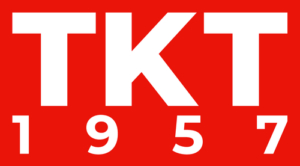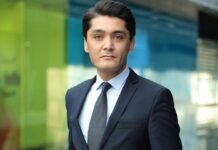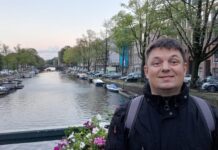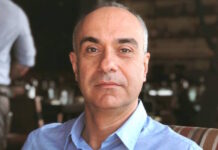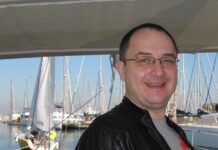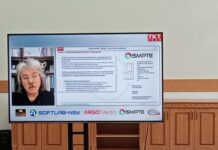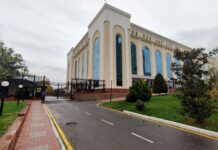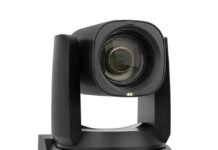
Interview with Chief Operation Officer at Broadcast Solutions Group Vladislav Grabovsky.
– Vladislav, let’s start with the traditional question: when and in what family were you born?
– I was born in Omsk on December 12, 1973. My father worked as a welder -in a car repair shop in “AvtoVAZ”, my mother worked as an agronomist in the College of Agriculture in the Department of Breeding and Seed Production. I have a brother, he is two years older than me, now he lives in Germany as well. I had been going to high school …
– How did you do in school?
– I did well. At that time, it was not very common for boys to study well, but I was one of the best among them.
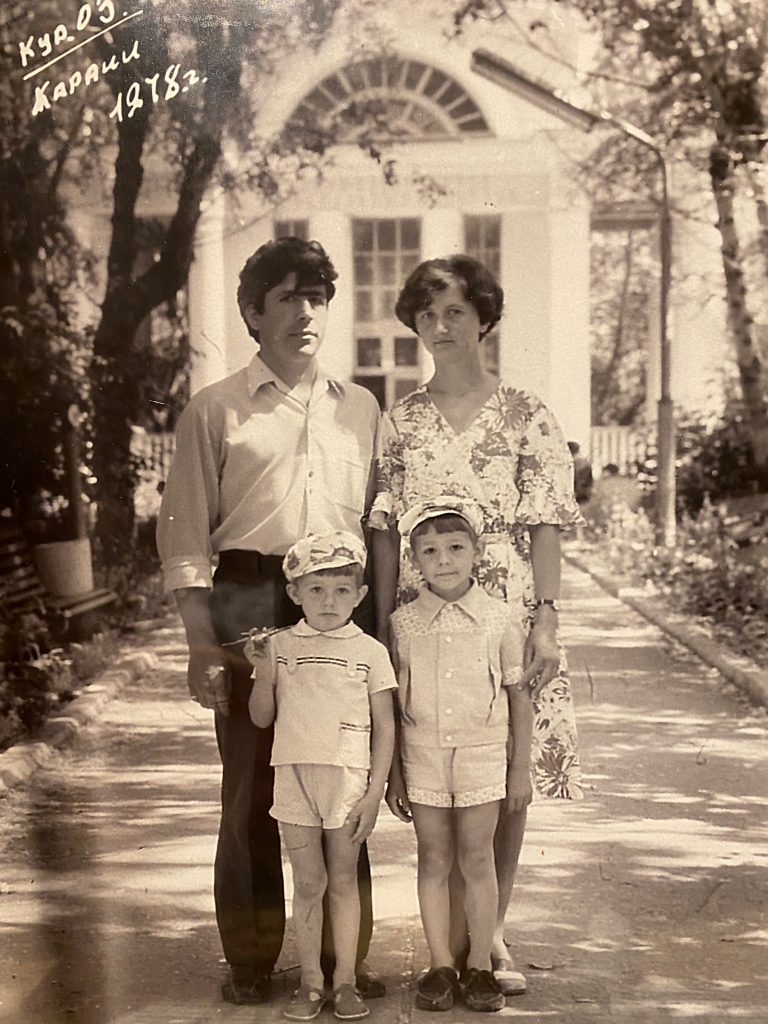 – Which subjects did you have an inclination for: technical or humanitarian?
– Which subjects did you have an inclination for: technical or humanitarian?
– I was very fond of math, that was my favorite subject.
– You graduated from the school in 1990?
– Yes, I graduated from the school in 1990 and went to college. I studied there for one semester, and then we left for Germany.
– Which college?
– It was the Omsk Polytechnic College, the specialty was called Refrigeration Technologies. Don’t ask me why I went there. At that time, I already knew that we would leave for Germany. I entered that College, and I joined them.
– Did you immigrate to Germany as ethnic Germans or as Jews?
– As ethnic Germans. My parents were born in the Omsk oblast and lived there in their families that almost always spoke only German. Then they moved to the city, where they forgot their native language and spoke with us only Russian. When we went to visit grandparents, sometimes it was difficult to communicate with them, because my grandmother spoke heavily-accented Russian.
– How did your ancestors happen to be in the Omsk oblast?
– My mother’s ancestors lived in the German Republic on the Volga river and were resettled at the start of the German invasion. And my father’s line ancestors somehow got there; unfortunately, I do not have any reliable information about that.
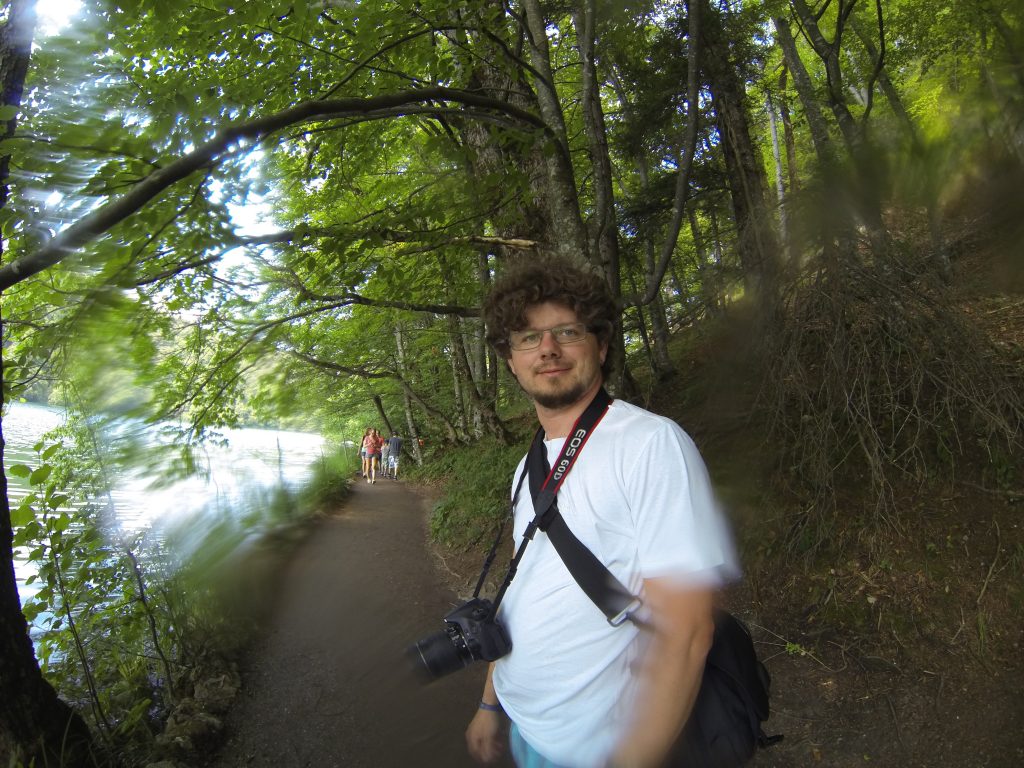
– It is clear that 1989 and 1990 were difficult years in terms of the economic and political situation. How had the decision to emigrate been made in the family? How did you prepare for that and finally decide you should leave? How did your family go through all this?
– My parents had been planning to move here for a long time. That was more their decision than mine. We were one of the first immigrants; later all our relatives moved here and now live in Germany.
– Where did you go?
– It was in February 1991, there is a small city of Gutersloh located in North Rhine-Westphalia. Our relatives on my father’s line lived in this city, they made the invitation to us, and we came there. In this city, we settled down. I immediately joined a German language course (there was such a program for young immigrants). I attended these courses for eight months in Hannover and then went on studying. I had to finish school here, too, because Soviet secondary education was not enough. The thing is that in Germany, secondary education lasts 12-13 years (the program and duration of school education differ in different federal states), and only having finished that, you can go to college. But I studied in a Soviet school only for 10 years, so to get an Abitur, I had to finish my studies here. Before going to college, I had been going to school for two years.
– You moved at the age of 18, after that you attended the course for eight months, and then another two years you’d been going to school. So going to school, you already were a grown man?
– Yes, I graduated from school at the age of 20. Though, there is nothing strange about it in Germany.
– Recently I watched a film about German public schools and was shocked. I did not think they are as tough as in America. Or was there a normal relationship among high school students at the school you attended?
– At the school where I finished my studies, we had a special class with a lot of immigrants: half a class was from Poland, half a class – from Russia and Kazakhstan. Of course, that is why we felt more comfortable: we were taught a little differently, and we did not speak German perfectly. Therefore, it was easier than if I had studied in a regular class with native Germans.
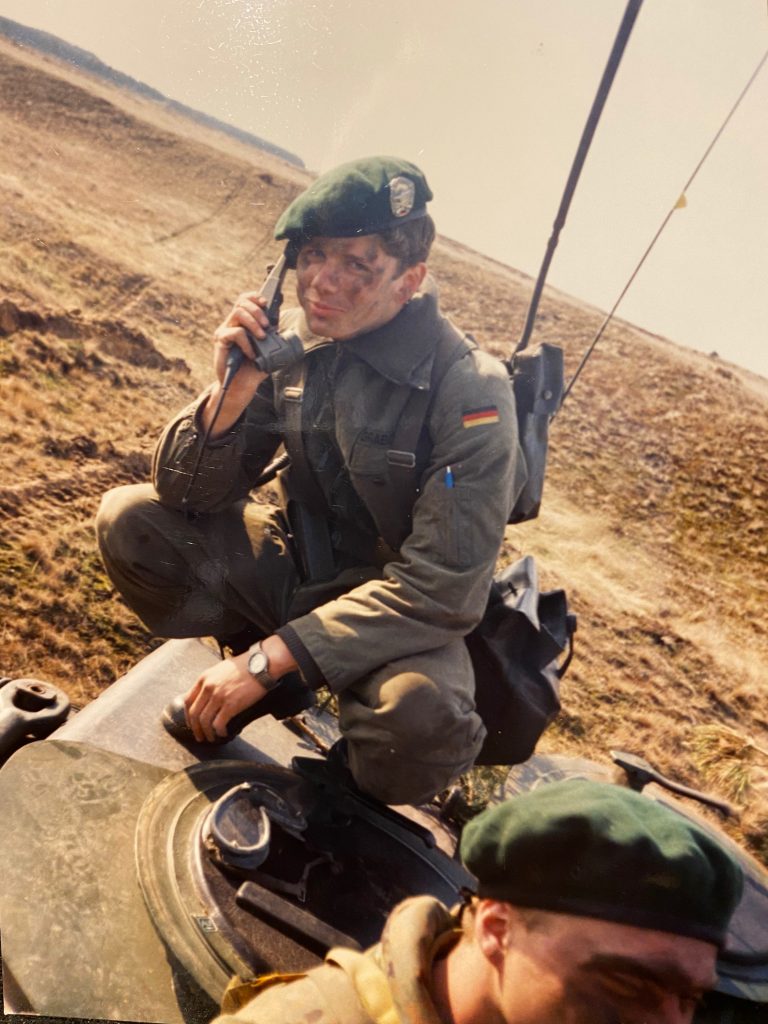 – Where did you go to study after graduating from school?
– Where did you go to study after graduating from school?
– I was looking for where to study and considering the option of sound engineering. But here, the relevant university requires applicants the skill of playing two musical instruments: one – perfectly, and the other – at an average level. I played guitar, but not even close to the level they expected, so I didn’t even try to get there and found several Colleges with similar but broader specialties. I entered the Faculty of Media Engineering, there was not only audio technology, but also video, lighting, stage design, and other disciplines. We extensively studied all media technologies.
– How exciting! I have never even heard of that.
– Yes, there are several universities of that kind in Germany. I studied in Hamburg, a similar specialty you can get in Stuttgart, now there are several more places where you can study that.
– When you came to Germany and studied there, did you live with your parents or separately?
– I left my parents as soon as I entered the course of the German language. I lived in the dormitory and went home on weekends.
– And during two school years?
– I also lived in a dormitory, because my studies had been in another city – Munster. We, immigrants, all lived together in the dormitory.
– Was the dormitory free?
– No, we paid the rent. It was not expensive, but anyway.
– Let’s talk about your parents. Your father was from a car service; your mother was from a College – they are far from Rockefellers. How did your family go through the first years in Germany?
– My Dad immediately started working here as an auxiliary worker. He was no longer employed as a welder: again, language skills were required. My Mom did not work; she was on medical leave.
– So, financially it was a very hard time for you?
– Yes, but on the other hand, the less money you have the more modest your needs are.
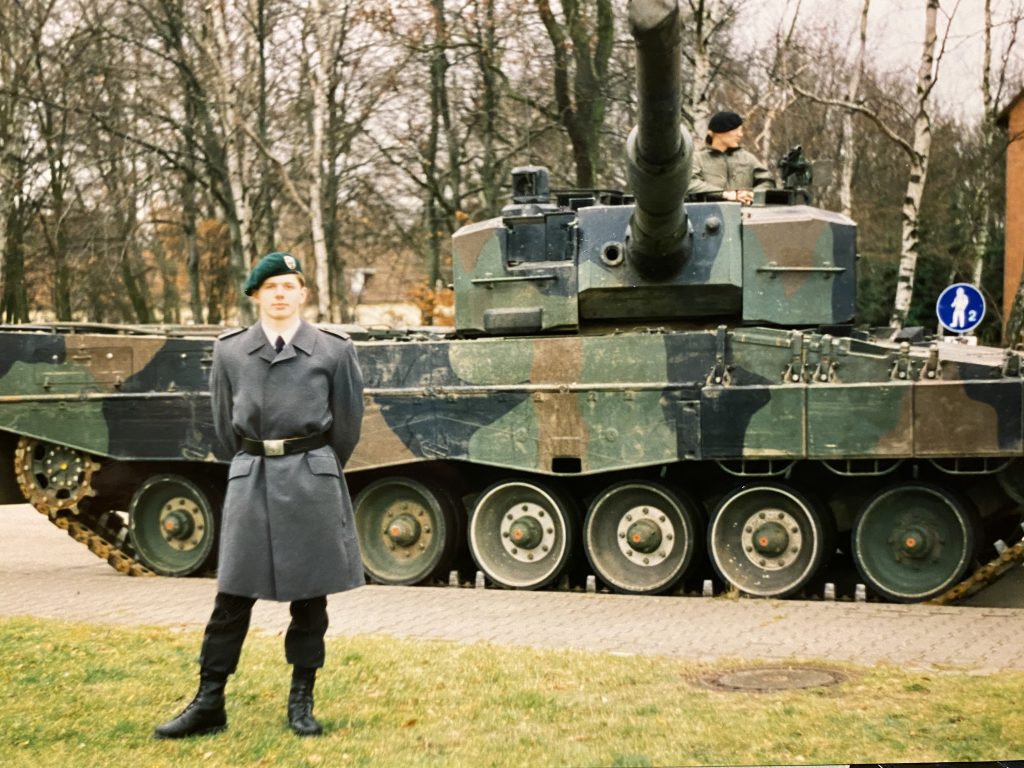 – How old is your brother? Is he older than you?
– How old is your brother? Is he older than you?
– My brother is two years older than me. He moved a year later than us because he was still serving in the Soviet army. When he finished his service, he came here. At that time, we had to leave without him for some reason.
– You entered the university at the age of 20, being already an adult man, and started studying there. Financial help from parents is good, but did you earn money yourself at that time?
– Yes, of course. At the very beginning, I took on any jobs. I worked in the daytime, for example, on the conveyor belt at the factory that makes bread and helped people to move to another home by carrying their furniture. Then I found a normal part-time job on TV: the local TV channel Hamburg-1 had a couple of programs, where I worked as a sound engineer. It was interesting, well-paid, and quite easy. In a word, it was great. In addition, that was the first dive into my profession.
– Did you do well at university?
– Yes, I did well. I accomplished my graduate thesis with a total grade of 2.0 – that’s good, like four of five in the Russian system. Some subjects were quite hard for me, I had to grind at them. For instance, there was the subject of law, which was not very simple for me, which, again, was due to the lack of language skills.
– Did you also study law on the specialty in engineering?
– Yes, we did.
– What a great German education – there’s nothing to say.
– Yes, there is a concept of basic education – the first three semesters, and then comes professional education. Basic education includes subjects such as law, mathematics, physics – I don’t remember all these subjects that I had to pass only to go further.
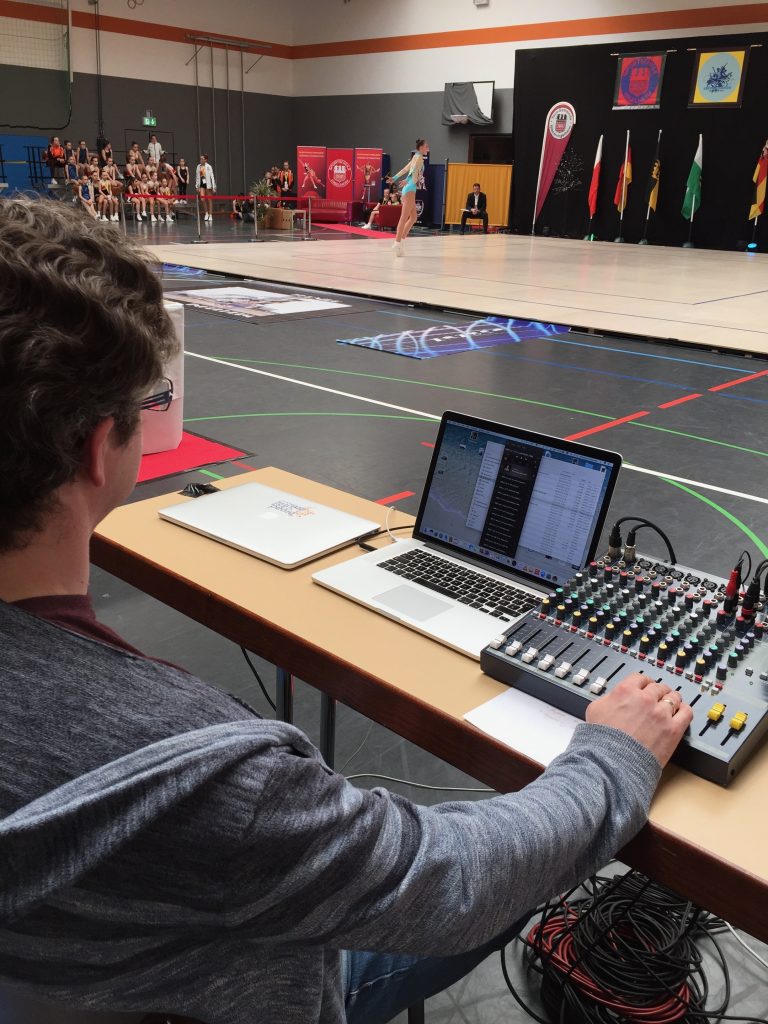 – How did you find your first job after graduation?
– How did you find your first job after graduation?
– When I was graduating from university and had already passed almost all exams, I started looking for the topic of my thesis and for a work where I could write it: I wanted to make a practical thesis, not a theoretical one. I filed applications to different companies, then I went to the IBC exhibition and got acquainted with Protec company located in Bingen, and they took me for my diploma thesis, which was called “Design, Installation, and Commissioning of News Radio Broadcasting Van”. For that project, I designed an audio system and learned all the other related systems used in such OB vans: electrical engineering, a small satellite system. I started writing my graduate thesis in 1999, completed it in 2000, and they hired me. My studies took a little longer because I had to interrupt for one year for the Bundeswehr service. I served for 12 months and then continued my studies.
– Was this military service compulsory or voluntary?
– It was compulsory at that time. Even students who went to universities had to be recruited. I finished the first semester, and they told me: “Let’s take a break for a service, you’ll continue later.” I could choose the so-called alternative service – not with arms, but doing work in a nursing home or some other social work, but its duration was even longer – 15 months. So, I decided that I don’t want to interrupt my studies for as much as 15 months.
– And how do you like the army?
– Well… I can’t say it was good, but it wasn’t bad either. It was okay, I’ve got some experience useful for life.
– What is your military specialty?
– I served in what is called in German Panzergrenadier (the infantry) and was trained as a driver of the infantry tank.
– Of Armored Personal Carrier?
– Yes, a driver of Armored Personal Carrier. We had a lot of exercises in the fields, with overnight stays in tents and something like that, but that was a long time ago.
– Did your brother served in Bundeswehr as well?
– No, he served in the Soviet Union, and here he didn’t have to.
– After the military service I had been having a nightmare for five years that I was taken back to the army.
– I had the same nightmare, too.
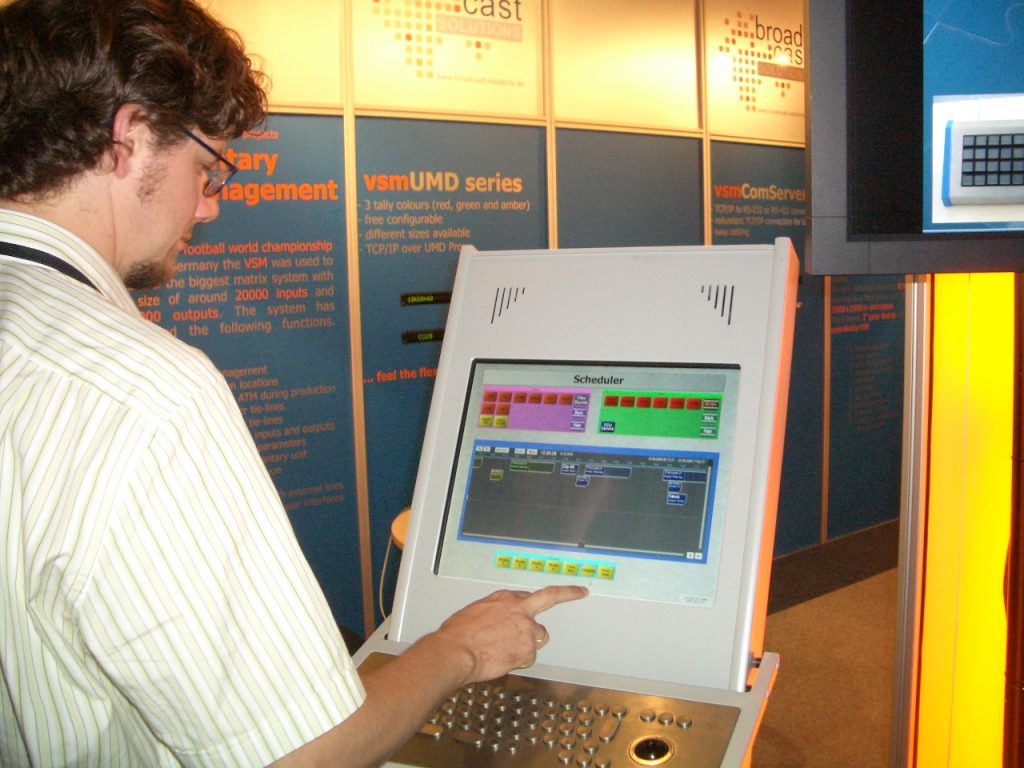 – When you’d completed your thesis, did that company hire you?
– When you’d completed your thesis, did that company hire you?
– Yes, it did, and I started my first projects: the design of audio systems for radio broadcasting vans and OB vans. But even then I felt that it was not enough for me – I wanted to be responsible not only for this part but for the entire complex of OB vans. And after I completed a couple of projects, the company entrusted me not only to design but also to entirely manage the project.
– Were you 27 years old at that moment?
– Probably, yes.
– That’s normal age. How was the relationship in the team? Does it matter in Germany whether you are an immigrant or not?
– This is a rather ambiguous question. Personally, I did not feel that I was treated differently from the native people, at least when I studied and worked. In general, it was different with different people. At first, there were unpleasant situations in the army, but it didn’t really affect me.
– How had your career been going in that company? How long and in what position did you work there? What was your final position?
– I worked there for three years. As I mentioned, I was engaged in the design, and because of my knowledge of the Russian language, I was asked to find some contacts in the Russian market. At the IBC Exhibition I met Alexander Marinichev (at that time he worked for the DNK), we immediately shared our common language and quickly arranged the first projects for Russian customers: we built an OB van with a satellite antenna for the Ugra TV channel; then we built a small OB van for Krasnoyarsk TV and, of course, continued to look for the next project. In 2002 the owners of the company I worked for sold their shares to the holding that was also listed on the stock exchange, but no longer had enough money and started going bankrupt. At that time, Protec’s director already foresaw the future that the company is unlikely to live long, so he decided to establish Broadcast Solutions and invited me to take part in that, as it was unclear how long Protec would survive. And so it happened: in early 2003 we opened Broadcast Solutions, and in summer the same year Protec went bankrupt.
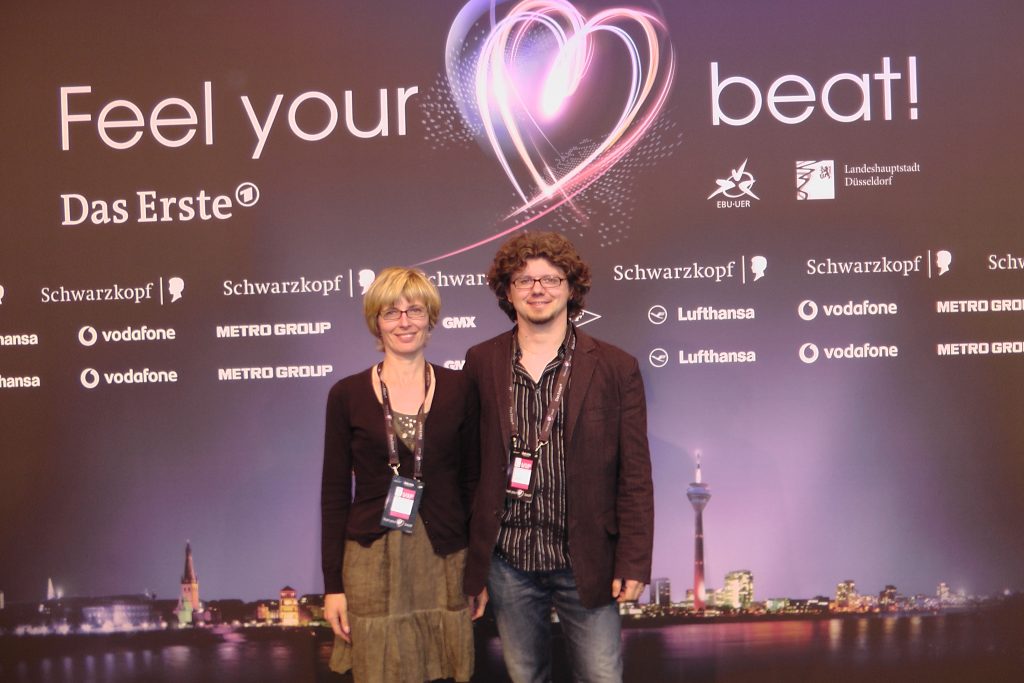 – What did he offer to you at Broadcast Solutions?
– What did he offer to you at Broadcast Solutions?
– He offered me a small share and to continue developing my business in the post-Soviet states.
– And how old was he at that moment?
– He is 10 years older than me.
– What a wonderful story! He invited quite a young man with relatively little experience to be a co-owner – that’s wonderful. In general, the history of Broadcast Solutions surprised me: in a relatively short period of time, the company has actually become a global giant.
– The company’s strategy played its role in that, but it was also important to be in the right place at the right time.
– A lot of companies have a strategy. Everyone wants to be Google, but not everyone succeeds. What were the first steps? How did you develop this company together?
– When we started, there were only five of us in the company. We had been doing engineering, design, and sales of products. For example, there were projects that we designed, and the production was done by Protec or other companies. As soon as Protec went bankrupt, many of its employees came to us, and the company’s staff expanded. At that moment, we already had a number of projects we started to produce ourselves. Back then, I was doing a lot of projects related to radio broadcasting vans for German radio channels such as RBB, SWR, Deutschlandradio, and others. I also continued to work with the CIS countries in cooperation with Alexander Marinichev, and the first major project we managed to have made was in 2004: two eight-camera OB vans, which are still being used by Vek XXL. As far as I know, the equipment has long been replaced by the modern one, but the base, the body, the electrical engineering, the air conditioners – all those things have been working since then, and everyone is happy.
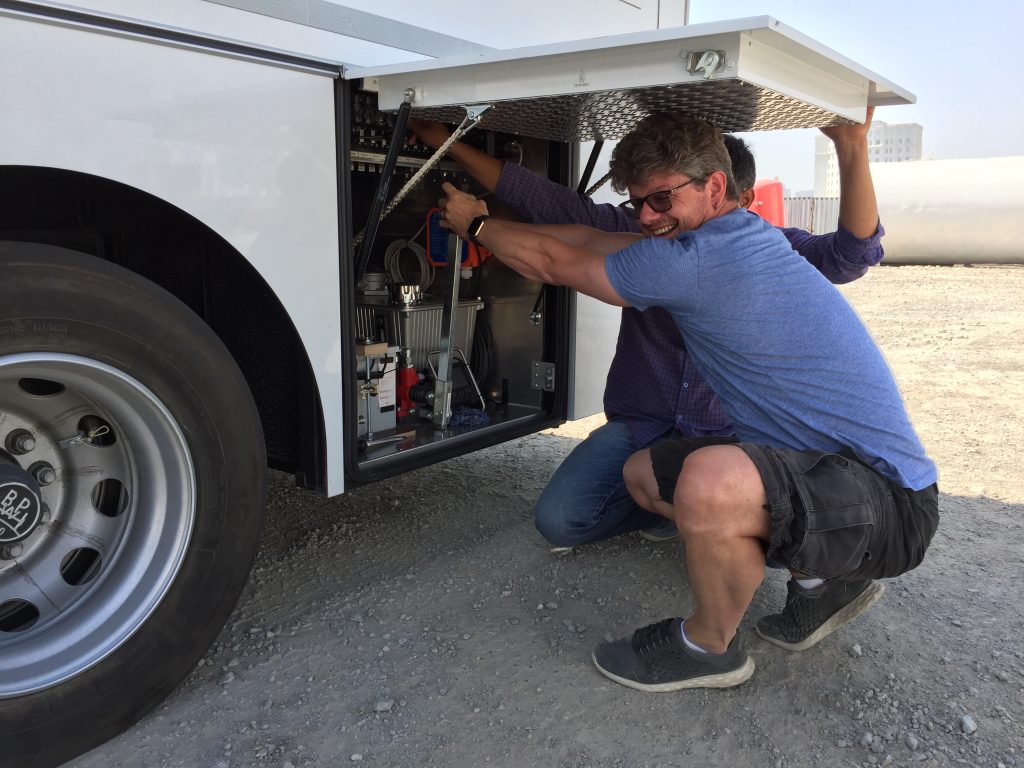 – In what year did you create a new company?
– In what year did you create a new company?
– At the beginning of 2003.
– So, this year you’re 17.
– Yes, the company is 17 years old.
– What was your position in the company?
– I was in a position called Prokurist in German – analog of a deputy director.
– In what line of business?
– In a small company we did a lot of things ourselves: we made calculations, designed, arranged logistics, export declarations. We did a lot of work that is now distributed to many employees.
– How have you been finding customers?
– We have been finding customers either at exhibitions or via our partners. We work very closely with different partners in foreign countries, not only from the CIS countries but from other countries as well. We have always tried to find partners, the work with who is mutually beneficial, who are close to the end customers because finding the end customers in Germany is not easy.
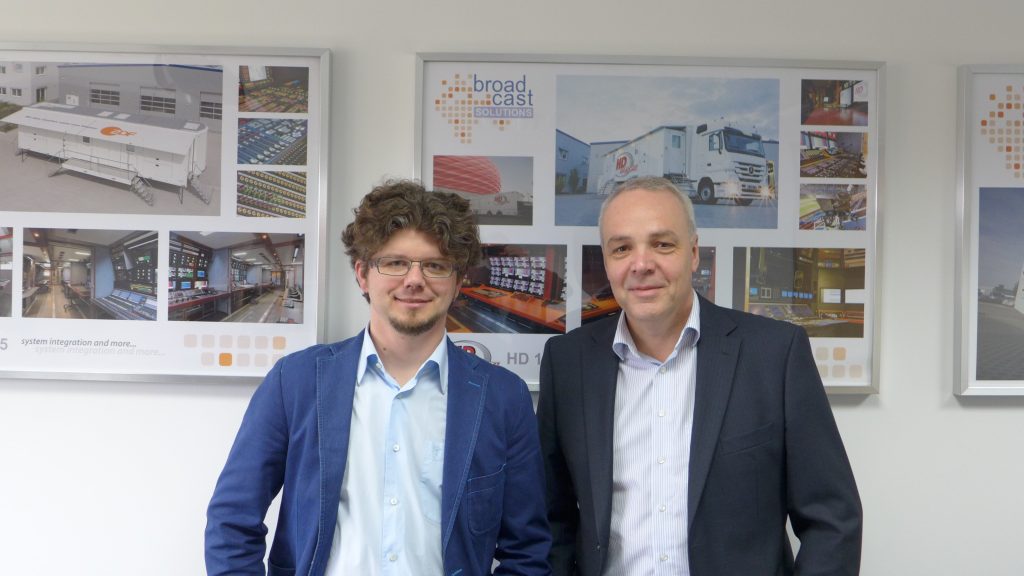 – The Russian market is very special.
– The Russian market is very special.
– Yes, the market there is special, but we have worked with many companies from Russia. We had projects with Ispa-Sat, DNK, S-Pro Systems. Recently, we completed the project for Mediaproekt from Saint-Petersburg. We have different partners depending on the project and how best to implement it. We also cooperated with Sony when we were building large OB vans for the Sochi Olympics.
– Do you mean you took orders and, together with Sony, built OB vans in Basingstoke?
– The work was divided. They built one part in Basingstoke, another part – here. We built four 16-camera OB vans, then we built a Central Apparatus vehicle for sports broadcasting, but that was in cooperation with Ispa-Sat.
– Can you tell more about developing Broadcast Solutions? After the company you left went bankrupt, you could recruit its former employees. At this point, how strong were Broadcast Solutions to hire new people? In that case, the company bears a big financial and legal responsibility to its new employees.
– We already had projects, so hiring employees was reasonable, otherwise, we would not be able to implement those projects.
– At what point did you start building the international network?
– We may be said to start building the international partner network from the very beginning and opened our own branches only in recent years. In 2014, when we merged with a partner company called Wireworks, our structure has slightly changed. The director of Wireworks became our Chief Technology Officer, and I got the position of Chief Operating Officer and a clear line of business – projects in the CIS countries.
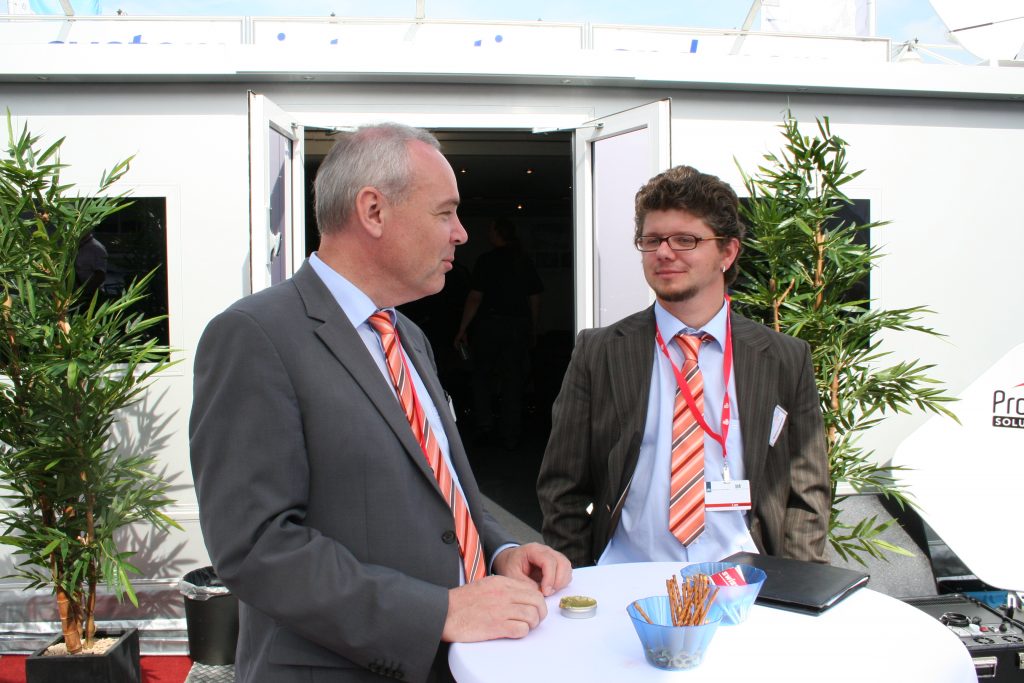 – Why did this merger take place? Was it a merger or acquisition?
– Why did this merger take place? Was it a merger or acquisition?
– It was a merger because we exchanged shares.
– What was the business area of Wireworks? What were its strong points?
– Wireworks’ area was engineering and design. They did not have their own production capacities, but they had a very deep knowledge of engineering and technology. We have already made many projects together, so we decided that it would be a very good step for our company to take in the new employees who perfectly know what they do.
– So, your own share of the company happened to be diluted?
– Yes, a little bit.
– Why was the Russian-speaking territory assigned to you? Because you were born in the Soviet Union?
– Initially, I was assigned to this area when working in Protec, due to my knowledge of the Russian language and mentality. In Broadcast Solutions, I continued working in this area thanks to my experience gathered in the projects of the post-Soviet countries.
– Do you mean that Poland is no longer included in your area of responsibility, which ends with Belarus and the Baltic States?
– The Baltic States are not my area of responsibility as well.
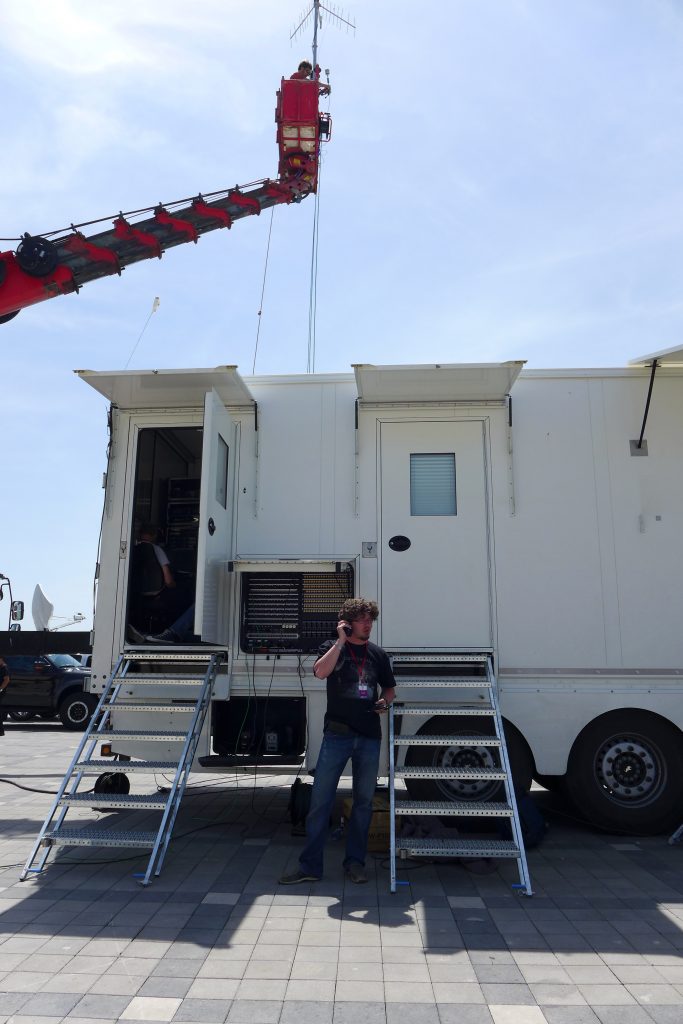 – But does Broadcast Solutions work in the Baltic markets?
– But does Broadcast Solutions work in the Baltic markets?
– Of course. I meant that projects in those states are managed by other employees. The other 12 countries of the former USSR are within my area of responsibility. We had a lot of projects in some markets, not very much in others, and in some countries, we had no projects at all. But we can’t complain, as we have a wide experience and portfolio.
– Let me ask you about Turkmenistan. How did you manage to enter this market? This country is very unusual.
– There was a project in Turkmenia, in which the construction company Polimeks got the order to build all sports facilities for the Asian Games, and that order also included OB vans. They invited several companies for the tender, which we won and built four large OB vans for them.
– Were these modern vans? When did it happen?
– Yes, these were modern vans. The first part of the project was in 2016, the second one in 2017. The first three OB vans are HD, and the last one is already 4K.
 – How did you find out about this tender? Or did they invite you?
– How did you find out about this tender? Or did they invite you?
– That was via our partner network. We had the information about the tender and knew who to talk to.
– That’s almost like working in North Korea.
– Yeah.
– What is your greatest success in your career?
– All the achievements, all the projects are a success. It’s always very hard work. First, you need to find the project; then, you need to find the right solution, calculate and evaluate everything correctly. When we win a tender, it is always a success. But after that, we must implement the project. As a man once said, when you get an order, celebrate your success, because then you will not celebrate, but you will be hard at work. That is the way it is. I can’t highlight any specific project right now. Maybe, the project for Panorama was significant and very large. We have not only built four 16-camera OB vans; we have also built seven satellite trucks at the first stage. That was the most significant and largest project. I can also single out last year’s project for Belarusian television which was large and interesting as well. I hope, we’ll have such projects in the future.
– Is it convenient for you to work with the people from the former USSR? Do the technical skills of local engineers and local customers correspond to their requests? I will clarify what I mean. I communicated with people (I don’t want to give their names) and relied on building a relationship with the end customers. That is very interesting for me, by the way. Most of them told me that when they were building an OB van, along the way they proposed some changes to the project, and those changes have been made. To what extent do their proposals of changes usually correspond to their actual skills? Do you know what I mean?
– Yes, I do. We always work closely with our customers and take into account their wishes that are very often well-founded. Maybe, sometimes we cannot figure out some details due to our German mentality, but anyway we always try to meet the needs of our customers I believe the work with our customers always goes in a constructive way, we find the common language very easily.
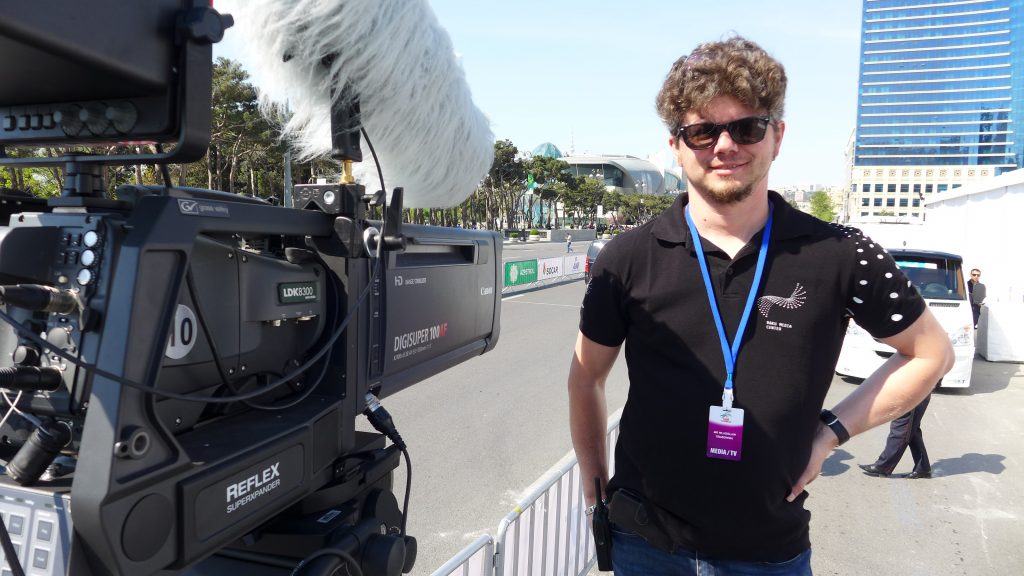 – How has your personal life turned out?
– How has your personal life turned out?
– My personal life is great. I have a family, three children – two girls and a boy. The girls are 18 and 17 years old, and the boy is 14 years old while still in school.
– The eldest daughter is 18 years old, which means you’d just found the job when she was born?
– Yes.
– Where did you meet your wife?
– We met here when I was finishing my school studies, as she was. She’s from Omsk as well, though.
– But you didn’t know each other in Omsk?
– No, we didn’t.
– What is your wife’s occupation?
– After having graduated from school, she studied to be a tax advisor assistant and still works in that area.
– I apologize, you have three children, you are a company’s shareholder, you’re in a high position, so can’t you afford to have your wife take care of your children and not work?
– She didn’t want to stay at home, she wanted to keep working. She works two and a half days a week because childcare also takes time. Our children sports, so we often have to take them to train. However, now they are getting more and more independent, my eldest daughter already drives a car herself.
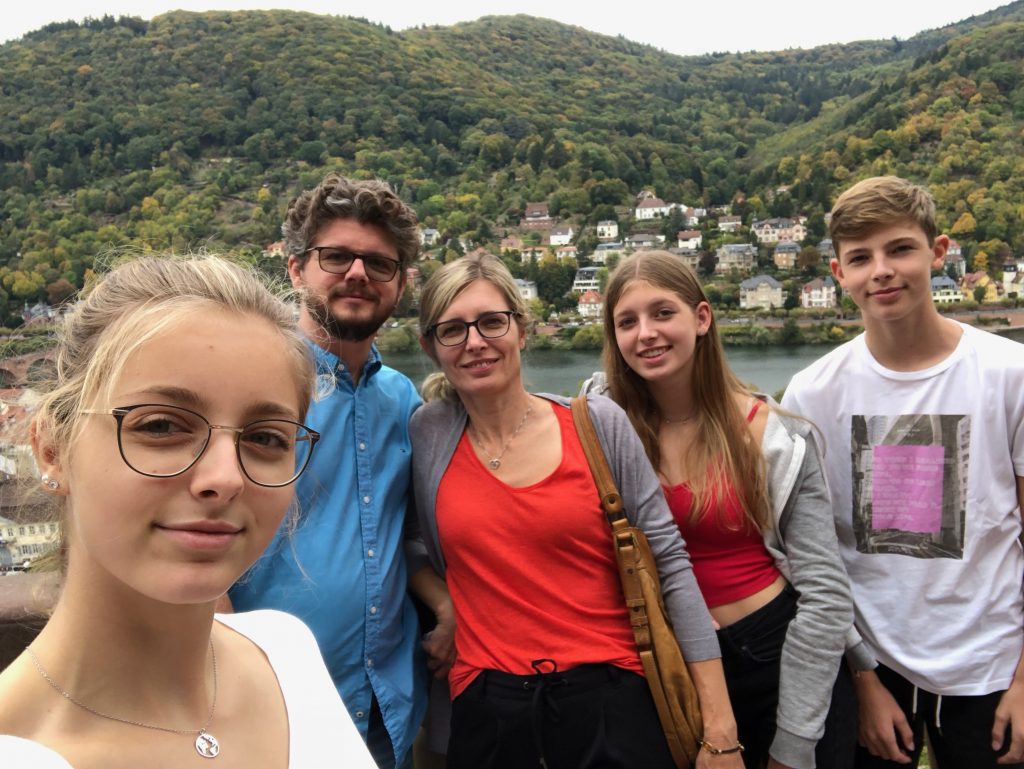 – What kind of sport does she practice?
– What kind of sport does she practice?
– My girls practice sports aerobics and participate in the international competitions, which have all been canceled this year. By the way, the competitions were planned in Japan, Azerbaijan, and Portugal. We’ve flown to Las Vegas with them to the competitions where they performed. Their club is very The club they belong to is successful and takes part in many competitions. To be honest, the German team does not achieve very high results at the international level, but at least they have a hand in that and have clout.
– It doesn’t matter. The most important is the girls are motivated.
– Yes, I agree.
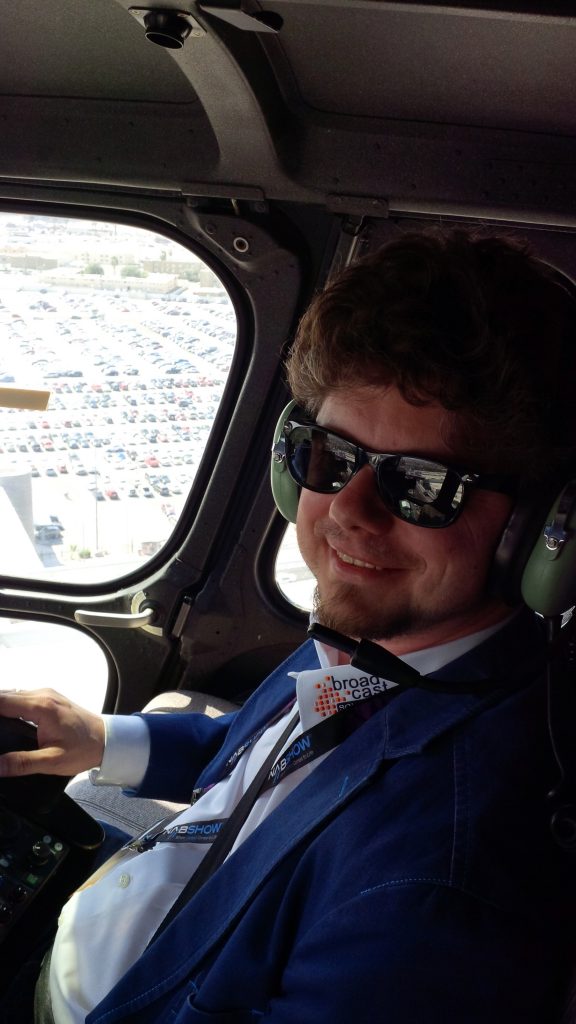 – What do they have inclinations for? Where will they go to study?
– What do they have inclinations for? Where will they go to study?
– Now my eldest daughter is looking for who she would become. She can’t decide yet. Sometimes she wants to serve in the police, sometimes – somewhere else.
– And what about your son?
– My son also likes sports, he plays basketball. He used to play soccer but then preferred basketball. Now he has no training due to the pandemic and sanitary restrictions – of course, he’s missing the game.
